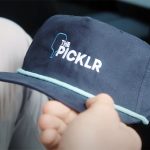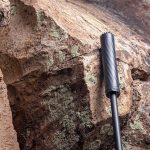A plethora of sporting goods industry executives plus a number of sports superstars arrived on Capitol Hill to help fight childhood obesity. These champions of sport brought a message: Theres an overwhelming need for daily P.E. in our schools, which will help trim the fat off Americas children who are overweight and out of shape.
On Wednesday, May 5, a delegation of well-known athletes, sporting goods manufacturers, sports retailers, concerned citizens, and association leaders visited Capitol Hill to participate in P.E.4LIFEs 4th Annual National P.E. Day activities, presented by SGMA International. They lobbied Congress for continued funding of daily P.E. classes in our nations schools. Some of the more prominent athletes in this delegation included Herschel Walker (1982 Heisman Trophy winner/former NFL superstar), Billie Jean King (tennis great), Cory Everson (six-time Ms. Olympia), Clinton Portis (NFL running back), Chris Byrd (heavyweight boxing champ), Jennifer Azzi (WNBA player), Stacey Nuveman (U.S. Olympic softball player), James Leija (IBF lightweight world boxing champ), and Tori Allen (rockclimber).
Prior to the lobbying efforts on May 5, the entire sporting goods delegation attended a Capitol Hill news conference conducted by P.E.4LIFE. At this event, a 10-step action plan was unveiled, which will help make children healthier through quality, daily physical education programs and increased physical education.
During the lobbying efforts on “the Hill,” individuals held more than 100 meetings with U.S. Representatives and U.S. Senators to garner their support of the Carol M. White Physical Education for Progress Program (PEP). The industry was pushing for the PEP Bill to be funded in 2005 for $100 million.
The PEP program provides grants to school districts and community-based organizations to upgrade local physical education programs. PEP grants can be used to purchase sports equipment and train teachers in innovative physical education techniques. In the past, PEP grants have purchased heart rate monitors, fitness assessment technology, inline skates, climbing walls, cross country skis, treadmills and fly fishing rods, as well as a wide range of traditional sports equipment.
For a historical glance at the PEP bill — last year, Congress approved $70 million in PEP funding, an increase from $60 million in 2003, $50 million in 2002, and $5 million in 2001, when the program was created. Eighteen grants were given in 2001, 176 grants in 2002, and more than 200 local school districts and community-based organizations received PEP grants in 2003. While the trend of increased funds reflects growing support for PE, severe budgetary constraints, brought on by war and homeland security spending, may threaten discretionary funding for programs like PEP, which necessitated a strong National P.E. Day showing on Capitol Hill this year.
“National P.E. Day events were widely supported by the sporting goods industry,” said SGMA International President John Riddle. “The turnout by the sporting goods industry this year was so strong, that we were able to schedule more than 100 meetings on Capitol Hill. One of the main reasons we have Congressional support for the PEP bill is because of the industrys concerted lobbying efforts on National P.E. Day. As an industry, we send a powerful message to Congress when we provide a united front.”














